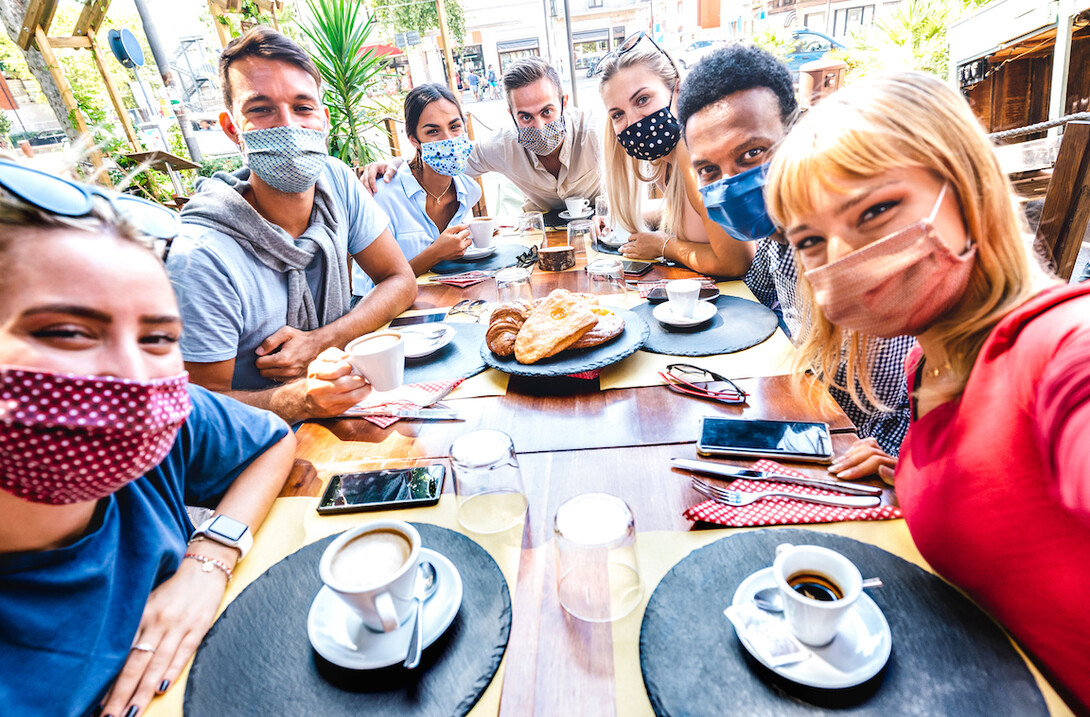
As the vaccination rate climbs in the United States and guidelines are relaxed, some are ready for a return to normalcy, while others are feeling trepidation about re-entering a post-pandemic society.
This is to be expected, said Debra Hope, an expert in anxiety disorders at the University of Nebraska–Lincoln.

“We’re very much creatures of habit, and for more than a year, we’ve been in our routines of always wearing a mask, keeping our distance, avoiding crowded places — that became our new normal, and now we’re having to think about those things in a different way,” said Hope, Aaron Douglas Professor of psychology. “People have also developed new routines of work, and we’ll be changing those routines again, and that can be challenging.”
A recent survey done by the Harris Poll, in partnership with the American Psychological Association, found Americans are feeling anxious and hesitant about the future. Nearly half — 49% — said they feel uneasy about adjusting to in-person interactions post-pandemic, and those who’d received the COVID-19 vaccine were just as likely as those unvaccinated to say this.
The anxiousness over returning to a pre-pandemic normal is weighing on top of the stress and anxiety that have been felt by most Americans throughout the pandemic.
“The research is still being done, but we know this pandemic had some really negative impacts on mental health,” Hope said. “Our routines were disrupted, our sleep patterns changed, we quit socializing, and spent all of our time online.
“All of those things definitely increased the stress we felt, and the loss of connection with people is associated with depression and anxiety. We’ve seen increases in substance abuse, and more difficulty maintaining sobriety. There’s been severe financial distress for some, and grief over the loss of family members and friends.”
Worrying about returning to the office, going to a restaurant again, or attending a large social gathering can manifest in physical ways, Hope said. Muscle tension, neck and back pain, elevated heart rates, difficulty sleeping, fatigue and trouble concentrating can all be symptoms of anxiety.
“Anxiety is based in the primary emotion of fear, but it tends to be future oriented — thinking about ‘what if,’ and feeling anxious about what is coming,” Hope said. “Anxiety is more about the anticipation that something bad is going to happen.”
The key to working through it is to take it one step at a time, Hope said.
“A lot of the things we know about helping people deal with anxiety are very helpful in this situation,” she said. “Do things gradually. Don’t jump back into your pre-pandemic life all at once. Pick and choose what you want to do and listen to yourself a little bit — that sense of what feels safe and what feels like too much.
“I think another important tool is really good communication, amongst our family, our friends, our co-workers, because we all have different evaluations for what feels safe. It’s really important to listen and respect that, and not pressure people to do things they’re not ready for. Good communication and problem-solving are really helpful.”
This also might be an opportune time to evaluate the work-life balance, make room for more fulfilling activities and relationships, which can, in turn, improve one’s mental and physical health.
“In the past, pandemics have been an opportunity for societies and for individuals to go through a transformative process,” Hope said. “I’ve talked about this with clients. When you go back to regular life — whatever that is — are there things, are there friendships, are there activities that you kind of did, but really, they weren’t enriching your life? You might move in a different direction. I think there are opportunities at all levels for that. For workplaces, I think there’s opportunities to rethink how we work, what kinds of activities make the most sense.
“I’m hopeful that we take some advantage of that as a society.”







